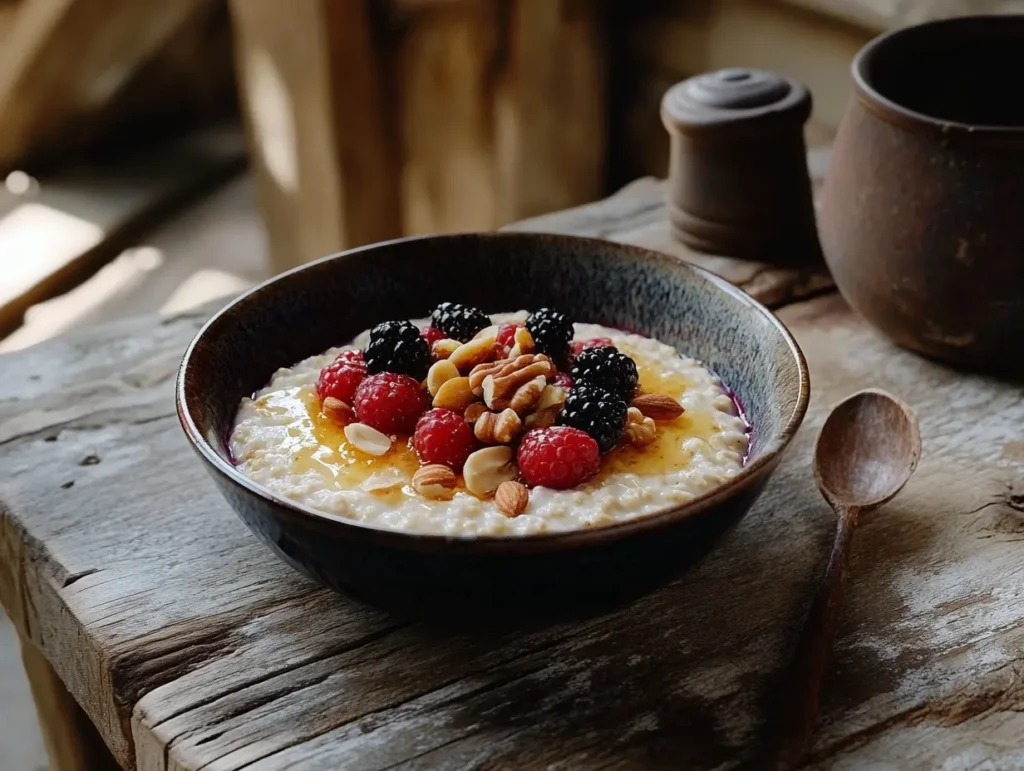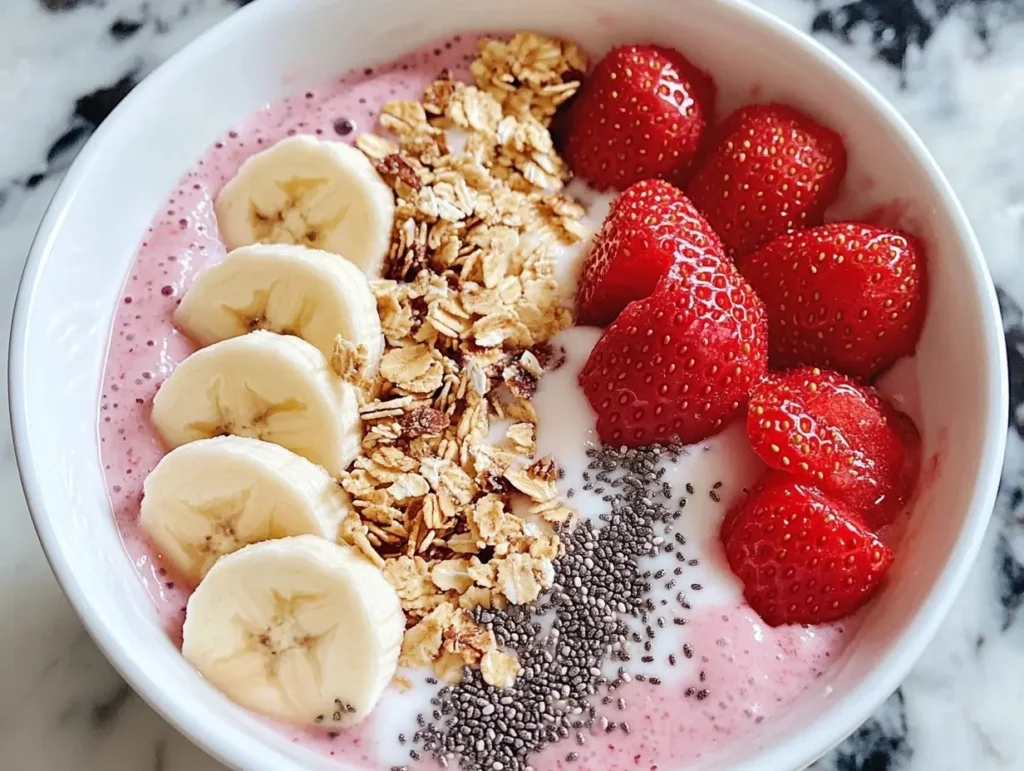Why Breakfast is Considered the Most Important Meal of the Day
Breakfast Essentials play a crucial role in setting the tone for a productive and healthy day. By including a balanced mix of whole grains, proteins, fruits, and beverages, breakfast provides the energy and nutrients your body needs after a night of fasting. Starting your day with the right breakfast essentials not only fuels your body but also supports overall well-being and long-term health goals..
In addition to its physiological benefits, breakfast sets the tone for dietary patterns. A nutrient-rich morning meal can encourage healthier choices throughout the day, providing essential vitamins, minerals, and fiber that contribute to a balanced diet. Skipping breakfast, on the other hand, has been linked to increased levels of stress and fatigue, further underscoring its significance.
Historical Evolution of Breakfast Habits
The concept of breakfast has evolved significantly over time, shaped by cultural, economic, and technological changes. In ancient civilizations, breakfast was often a simple affair, primarily consisting of what was readily available—such as grains, fruits, or leftovers from the previous day’s meals. For instance, the Romans typically ate a small meal called tenaculum in the morning, which included bread, cheese, and wine.
During the Middle Ages in Europe, breakfast was viewed with skepticism, as many believed eating early in the day was indulgent. It was primarily reserved for laborers, travelers, or the sick, who needed sustenance to endure physically demanding tasks. The Renaissance period saw a gradual shift, with the wealthy incorporating breakfast as a more formalized meal, often featuring bread, butter, and meat.
The Industrial Revolution marked a significant turning point in breakfast habits. With the advent of rigid work schedules, breakfast became an essential meal to fuel long working hours. Innovations in food production, such as the invention of ready-to-eat cereals in the late 19th century, revolutionized breakfast culture, particularly in the Western world. These cereals, marketed as quick and healthy options, gained popularity as societies embraced convenience.
In modern times, breakfast habits continue to vary globally, reflecting regional cuisines and lifestyles. From traditional options like a Japanese asa-gohan with rice, miso soup, and fish to a full English breakfast with eggs, bacon, and baked beans, the morning meal remains a cornerstone of cultural identity and nutrition.
Breakfast, though diverse in its forms and practices, universally symbolizes the start of a new day, offering nourishment, energy, and a moment of connection, whether with oneself or with others.
Table of contents
Nutritional Importance of Breakfast
Key Nutrients for an Ideal Breakfast
An ideal breakfast is more than just a meal—it’s a strategic opportunity to provide the body with essential nutrients that support physical and mental health. A well-balanced breakfast should include a variety of macronutrients and micronutrients to ensure sustained energy and optimal functioning throughout the day.
- Carbohydrates: As the primary source of energy, complex carbohydrates like whole grains, oats, or fruits provide a steady release of glucose, helping to maintain blood sugar levels and prevent energy crashes.
- Protein: Including protein-rich foods such as eggs, yogurt, lean meats, or plant-based options like nuts and legumes helps in muscle repair, satiety, and maintaining metabolic rate.
- Healthy Fats: Incorporating sources of healthy fats, such as avocados, nuts, seeds, or olive oil, supports brain health, hormone production, and long-lasting energy.
- Fiber: Foods high in fiber, like fruits, vegetables, and whole grains, aid in digestion, regulate blood sugar levels, and contribute to a feeling of fullness.
- Vitamins and Minerals: Breakfast is an excellent time to consume nutrient-dense foods like fruits, vegetables, and fortified cereals to meet daily requirements for vitamins (e.g., Vitamin C, B vitamins) and minerals (e.g., calcium, iron).
- Hydration: Including a hydrating beverage, such as water, herbal tea, or a small glass of 100% juice, ensures rehydration after overnight water loss.
Impact of Skipping Breakfast on Health and Productivity
Skipping breakfast can have a range of negative effects on both physical health and cognitive performance. While the occasional missed meal may not be harmful, habitual breakfast skipping can lead to significant long-term consequences:
- Impaired Cognitive Function: Without the morning replenishment of glucose, the brain struggles to perform optimally, resulting in reduced concentration, slower reaction times, and diminished memory retention.
- Energy Deficits: Skipping breakfast often leads to feelings of fatigue and decreased stamina, especially during the morning hours when the body is expected to be at its most productive.
- Increased Risk of Overeating: People who skip breakfast may experience intensified hunger later in the day, leading to overeating or choosing high-calorie, low-nutrient snacks.
- Metabolic Impact: Regularly forgoing breakfast has been associated with increased risks of metabolic disorders, including insulin resistance, obesity, and Type 2 diabetes.
- Cardiovascular Health: Research indicates that breakfast skippers may face a higher likelihood of developing cardiovascular issues, possibly due to the adverse effects on cholesterol levels and blood pressure.
- Mental Health Concerns: Skipping breakfast can also negatively impact mood, increasing stress and irritability. A balanced morning meal supports emotional regulation and overall mental well-being.
The importance of breakfast lies not just in eating, but in eating thoughtfully. A nutrient-rich breakfast sets a positive tone for the day, fueling the body and mind for peak performance while safeguarding long-term health.
Categories of Breakfast Essentials²

Whole Grains
Whole grains are a cornerstone of a nutritious breakfast, offering a rich source of complex carbohydrates, fiber, and essential nutrients. These grains release energy slowly, keeping you fuller for longer and maintaining stable blood sugar levels. Examples include:
- Oats: A versatile option rich in beta-glucan, a type of soluble fiber that supports heart health.
- Whole Grain Bread or Toast: Ideal for pairing with spreads like avocado, nut butter, or eggs.
- Quinoa and Brown Rice: These grains can be incorporated into breakfast bowls for added variety.
- Whole Grain Cereals: Look for options with minimal added sugars and high fiber content.
Proteins
Protein is a vital component of breakfast, promoting muscle repair, satiety, and sustained energy. Including a variety of protein sources can make breakfast both satisfying and nutritious. Options include:
- Eggs: A versatile and complete protein, eggs can be boiled, scrambled, or poached.
- Lean Meats: Turkey or chicken sausages provide a low-fat alternative to traditional breakfast meats.
- Plant-Based Proteins: Tofu, tempeh, and legumes are excellent choices for vegetarians or vegans.
- Nuts and Seeds: Almonds, walnuts, chia seeds, and flaxseeds not only add protein but also healthy fats and fiber.
Fruits and Vegetables
Fruits and vegetables bring a burst of flavor, color, and essential nutrients to breakfast, offering vitamins, minerals, antioxidants, and fiber. They can be enjoyed fresh, cooked, or blended into meals. Popular options include:
- Fruits: Berries, bananas, apples, oranges, and mangoes provide natural sweetness and a range of nutrients.
- Vegetables: Spinach, kale, bell peppers, and tomatoes can be included in omelets, smoothies, or savory bowls.
- Avocado: Rich in healthy fats, avocado pairs well with whole-grain toast or as a topping for breakfast bowls.
- Smoothies: Combining fruits and vegetables into a smoothie is a convenient way to maximize nutrient intake.
Dairy and Non-Dairy Alternatives
Dairy and non-dairy products contribute calcium, protein, and other vital nutrients to a balanced breakfast. For those with dietary preferences or restrictions, non-dairy alternatives ensure inclusivity without compromising nutrition. Choices include:
- Traditional Dairy: Milk, yogurt, and cheese provide high-quality protein and calcium.
- Non-Dairy Alternatives: Almond milk, soy milk, coconut milk, and oat milk are fortified options for individuals avoiding dairy.
- Greek Yogurt: A high-protein option that pairs well with fruits, nuts, and honey.
- Cheese Alternatives: Plant-based cheeses made from nuts or seeds offer similar texture and flavor for vegan diets.
Incorporating a mix of these categories into your breakfast ensures a well-rounded, satisfying, and nutrient-dense start to the day, setting the stage for sustained energy and overall health.
Whole Grains as Breakfast Staples
Popular Options: Oats, Whole-Grain Bread, and Cereals
Whole grains are a foundational component of a healthy breakfast, offering a range of versatile and delicious options. Popular choices include:
- Oats: Available as rolled, steel-cut, or instant, oats can be prepared as a porridge, overnight oats, or baked into bars.
- Whole-Grain Bread: A nutrient-dense base for avocado toast, sandwiches, or spreads like nut butter.
- Whole-Grain Cereals: Look for options with minimal added sugars and high fiber content for a quick and satisfying breakfast.
Benefits of Incorporating Whole Grains in Breakfast
- Sustained Energy: Complex carbohydrates in whole grains provide a slow and steady release of energy.
- Improved Digestion: The fiber content supports gut health and aids in digestion.
- Heart Health: Whole grains help lower cholesterol levels and reduce the risk of heart disease.
- Weight Management: High fiber promotes satiety, helping to control appetite and prevent overeating.
High-Protein Breakfast Options
Eggs, Yogurt, and Plant-Based Protein Alternatives
Proteins, like eggs and yogurt, are vital for satiety and energy. If you’re looking for versatile sauces to pair with your meals, check out this guide to Parmesan Garlic Sauce for a savory addition to your protein-packed breakfast.
Eggs: A versatile and complete protein source, suitable for boiling, scrambling, poaching, or frying.
- Yogurt: Greek yogurt, in particular, offers high protein content and pairs well with fruits and nuts.
- Plant-Based Alternatives: Tofu, tempeh, chickpeas, and protein powders provide options for vegetarians and vegans.
Easy High-Protein Breakfast Recipes
- Vegetable Omelet: Eggs mixed with chopped vegetables for a nutrient-packed start to the day.
- Greek Yogurt Parfait: Layer creamy Greek yogurt with fresh berries, crunchy granola, and a drizzle of honey
- Smoothie Bowl: Blend protein powder with fruits, almond milk, and spinach, and top with nuts and seeds.
Incorporating Fruits and Vegetables

Seasonal Fruits and Their Benefits
Eating seasonal fruits ensures freshness, better taste, and maximum nutrient availability. Some popular seasonal options include:
- Summer: Berries, watermelon, and peaches.
- Fall: Apples, pears, and pomegranates.
- Winter: Oranges, grapefruits, and kiwis.
- Spring: Strawberries, cherries, and mangoes.
Smoothies and Vegetable-Rich Breakfasts
- Smoothies: Combine fruits, leafy greens, and a liquid base (milk, almond milk, or water) for a nutrient-dense drink.
- Vegetable Omelets: Add spinach, mushrooms, or bell peppers for a fiber-rich meal.
- Avocado Toast: Whole-grain bread topped with mashed avocado, cherry tomatoes, and a sprinkle of seeds.
Beverage Choices for Breakfast
Importance of Hydration
Starting the day with proper hydration is essential for energy, digestion, and overall health. Morning beverages help rehydrate the body after overnight water loss.
Healthy Drink Options: Water, Tea, Coffee, and Juices
- Water: Drinking a glass of water first thing in the morning kick-starts hydration.
- Tea: Green tea or herbal teas are great for hydration and provide antioxidants.
- Coffee: In moderation, coffee can boost alertness and provide antioxidants.
- Juices: Opt for 100% fruit or vegetable juices to avoid added sugars while enjoying vitamins and minerals.
Time-Saving Breakfast Essentials
Meal Prepping for Busy Mornings
- Overnight Oats: Prepare oats the night before with milk or yogurt and toppings like fruits or nuts.
- Pre-Cut Ingredients: Chop fruits and vegetables ahead of time for smoothies or omelets.
- Batch Cooking: Make breakfast burritos or muffins in bulk and freeze for quick reheating.
Quick Grab-and-Go Breakfast Ideas
- Smoothies: Blend and pack in a travel-friendly container.
- Breakfast Bars: Homemade or store-bought options with whole grains and nuts.
- Fruit and Nut Mixes: A simple mix of dried fruits and nuts for a portable, energy-dense snack.
International Breakfast Essentials
Popular Breakfast Dishes from Around the World
- United States: Pancakes, scrambled eggs, and bacon.
- Japan: Traditional asa-gohan with rice, miso soup, grilled fish, and pickles.
- India: South Indian dosas or North Indian parathas with yogurt.
- Mexico: Chilaquiles with salsa, beans, and eggs.
- France: Croissants and café au lait.
Cultural Influences on Breakfast Choices
Cultural traditions, geography, and local ingredients shape breakfast preferences worldwide. For example:
- Mediterranean Countries: Emphasis on fresh fruits, olive oil, and bread.
- Asian Countries: Rice and savory dishes are common, reflecting the region’s culinary traditions.
- Western Countries: Convenience foods like cereals and toast dominate due to busy lifestyles.
Exploring international breakfast staples highlights the diversity and cultural richness of this essential meal, offering inspiration to expand your breakfast repertoire.
Breakfast Essentials for Different Lifestyles
Vegan and Vegetarian Breakfast Options
- Vegan Options: Smoothie bowls with plant-based milk, chia seed puddings, tofu scrambles, or avocado toast with nutritional yeast.
- Vegetarian Options: Egg-based dishes like omelets or frittatas, yogurt parfaits with fruits and nuts, and cheese-topped whole-grain bread.
- High-Protein Choices: Lentil pancakes, almond butter on whole-grain toast, or tempeh breakfast wraps.
Gluten-Free and Dairy-Free Alternatives
- Gluten-Free: Gluten-free oats, rice cakes with peanut butter, or frittatas with roasted vegetables.
- Dairy-Free: Plant-based yogurts, nut or soy milk in smoothies, or dairy-free spreads on whole-grain bread.
- Cross-Compatible Options: Gluten-free avocado toast or chia puddings made with almond milk.
Kids’ Breakfast Essentials
Nutritional Needs for Children
- Key Nutrients: Protein, calcium, iron, and vitamins for growth and development.
- Balanced Meals: Incorporate whole grains, fruits, and a protein source, such as eggs or yogurt.
Fun and Appealing Breakfast Ideas for Picky Eaters
- Creative Presentation: Use cookie cutters to make fun shapes out of pancakes or sandwiches.
- Interactive Meals: Allow kids to customize their breakfast with a “build-your-own” yogurt parfait or toast station.
- Colorful Choices: Include a variety of fruits and colorful ingredients to make meals visually appealing.
Budget-Friendly Breakfast Essentials
Affordable and Nutritious Options
- Staple Foods: Oats, bananas, eggs, and peanut butter are inexpensive and versatile.
- Bulk Cooking: Prepare batches of muffins or breakfast burritos for the week.
- Homemade Alternatives: Make your own granola or breakfast bars to save on store-bought costs.
Planning and Shopping Tips for Economical Breakfasts
- Buy in Bulk: Purchase staples like oats, rice, and nuts in larger quantities for cost savings.
- Plan Ahead: Create a weekly breakfast menu to avoid impulse purchases.
- Seasonal Shopping: Choose fruits and vegetables in season for the best prices and flavors.
Innovative Breakfast Gadgets and Tools
Must-Have Kitchen Tools for Breakfast Prep
- Blender: Perfect for smoothies, batters, and sauces.
- Non-Stick Pan: Essential for pancakes, eggs, and crepes.
- Toaster: Quick and efficient for bread and bagels.
Time-Saving Gadgets for Efficiency
- Electric Egg Cooker: Quickly prepares boiled, poached, or scrambled eggs.
- Overnight Oats Jars: Pre-measured containers for convenient meal prep.
- Multi-Use Breakfast Maker: Combines toaster, griddle, and coffee maker in one.
Common Myths About Breakfast
Debunking Myths About Breakfast Timing and Content
- Myth: “Skipping breakfast slows your metabolism.”
Fact: While breakfast is beneficial, metabolism primarily depends on overall calorie intake and physical activity. - Myth: “Eating breakfast means you’ll eat less later.”
Fact: It varies by individual; some people consume more if breakfast is skipped, but others don’t.
Separating Facts from Misconceptions
- Myth: “Cereal is always a healthy breakfast option.”
Fact: Many cereals are high in sugar. Opt for whole-grain, low-sugar options. - Myth: “You must eat breakfast as soon as you wake up.”
Fact: Timing depends on personal preference and schedule.
Tips for a Balanced Breakfast
Proportions of Food Groups in a Healthy Breakfast
- Carbohydrates: 40–50% (e.g., whole grains or fruits for energy).
- Proteins: 20–30% (e.g., eggs, nuts, or yogurt for satiety and repair).
- Fats: 20–30% (e.g., avocado or nut butter for sustained energy).
Customizing Breakfast Based on Individual Needs
- Active Lifestyle: Include higher protein and calorie options to fuel workouts.
- Weight Management: Focus on fiber-rich and low-calorie foods to promote fullness.
- Dietary Restrictions: Tailor ingredients to accommodate allergies or preferences, such as gluten-free or vegan choices.
Balancing the right proportions and incorporating variety ensures a breakfast that caters to health, taste, and lifestyle needs.
FAQs About Breakfast Essentials
How Healthy Are Breakfast Essentials?
Breakfast essentials can be very healthy when chosen and prepared thoughtfully. Key points include:
- Nutritional Balance: Breakfast essentials like whole grains, proteins, fruits, and dairy or non-dairy alternatives provide essential nutrients such as fiber, protein, vitamins, and minerals.
- Health Benefits: A balanced breakfast supports energy levels, cognitive function, and overall health while reducing the risk of overeating later in the day.
- Quality Matters: The healthiness of breakfast essentials depends on ingredient quality. For example, choosing whole-grain cereals over sugary options or fresh fruit instead of processed juices makes a significant difference.
- Customizable for Diets: Breakfast essentials can be tailored to specific dietary needs, such as gluten-free, vegan, or low-calorie, making them versatile and inclusive.

What Age Are Breakfast Essentials For?
Breakfast essentials are important for all age groups, as they meet the unique nutritional needs of different life stages:
- Children: Growing children need nutrient-dense breakfasts to support physical growth and cognitive development. Include options like whole grains, fruits, and milk or dairy-free alternatives.
- Teenagers: With increased energy demands and growth spurts, teenagers benefit from protein-rich and balanced breakfasts to sustain their busy schedules.
- Adults: Breakfast helps maintain energy and productivity throughout the day while supporting weight management and long-term health goals.
- Elderly: Nutrient-rich and easy-to-digest options are ideal for older adults, ensuring they meet their nutritional needs and maintain overall health.
- Special Populations: For individuals with specific health concerns (e.g., diabetes, food intolerances), breakfast essentials can be adapted to align with dietary recommendations.
Breakfast essentials are universally beneficial and can be modified to suit the dietary requirements and preferences of all ages, ensuring a healthy and energetic start to the day.
Conclusion
Recap of the Importance of Breakfast Essentials
Breakfast is more than just the first meal of the day—it’s the foundation for a productive and energetic start. Incorporating whole grains, proteins, fruits, and beverages into your morning routine ensures a balanced intake of nutrients, supports overall health, and promotes better concentration and mood. By choosing breakfast options tailored to your lifestyle and preferences, you can make this meal both enjoyable and impactful.
Encouragement to Adopt Healthier Breakfast Habits
Adopting healthier breakfast habits doesn’t have to be complicated. Start small by integrating nutrient-rich ingredients, planning meals ahead, and exploring creative recipes that excite your taste buds. Whether you prefer a quick grab-and-go meal or a hearty sit-down breakfast, making thoughtful choices can transform your mornings and set the tone for the day. Commit to prioritizing breakfast essentials and experience the benefits of a healthier, more energized lifestyle.

